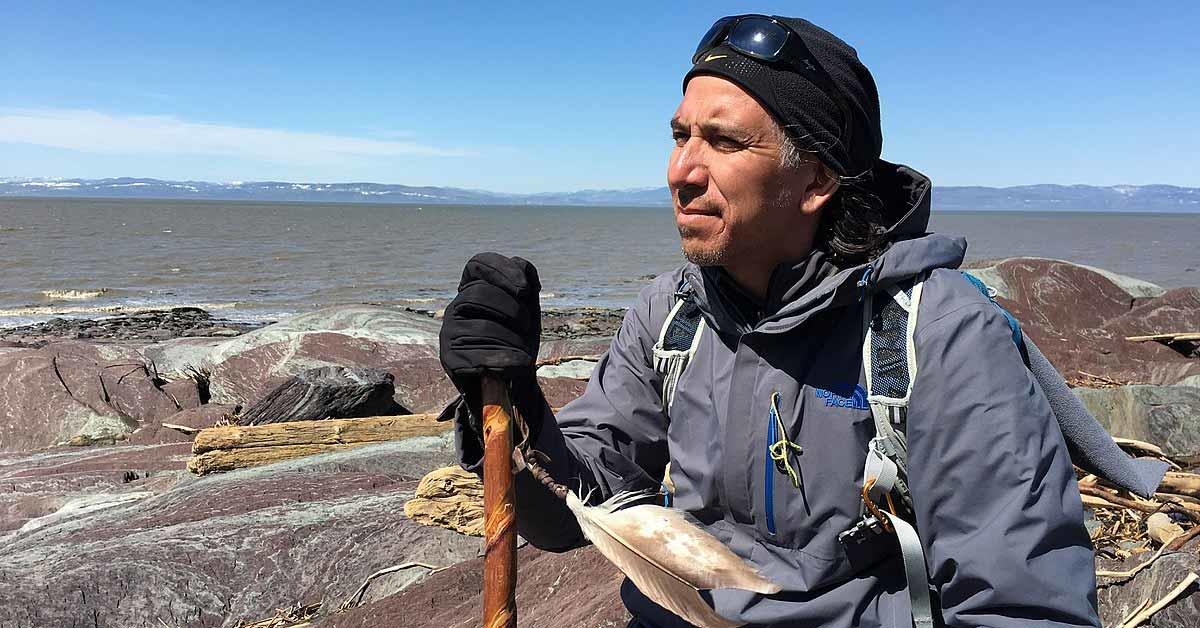
By Linda Scales and Laura Darche
The University of Ottawa awards nine exceptional individuals with honorary doctorates for their outstanding contributions at its 2018 spring convocation. Indigenous children’s rights advocate Dr. Cindy Blackstock, and Dr. Stanley Vollant, a surgeon encouraging Indigenous youth to pursue their dreams, are among those being recognized.
Cindy Blackstock
Renowned First Nations children’s rights advocate Cindy Blackstock isn’t afraid to fight for what is right and fair.
In 2007, the Assembly of First Nations and the First Nations Child and Family Caring Society, with Blackstock as executive director, filed a complaint with the Canadian Human Rights Commission charging the federal government with discrimination against Indigenous children through underfunding of child welfare services on reserves. Nine years later, in January 2016, the Canadian Human Rights Tribunal ordered the government to end racial discrimination against the children, overhaul its system and increase funding. It was considered a landmark human rights decision.
For Blackstock, a member of the Gitxsan First Nation, her experience in child protection and Indigenous children’s rights started some 30 years ago as a provincial child protection officer in Vancouver. She realized that First Nations child welfare services were being shortchanged, and many Indigenous youth were being sent to foster homes, often to non-Indigenous families. Blackstock wrote her doctoral thesis about Canada’s child welfare system and completed master’s degrees in management and in jurisprudence.
An important reconciliation symbol at every tribunal hearing was “Spirit Bear,” a white teddy bear given to Blackstock by the Carrier Sekani Tribal Council. Blackstock brought Spirit Bear to “bear witness” for the 165,000 First Nations children affected by the child welfare case. In 2017, she co-authored a book called Spirit Bear and Children Make History to teach children about the child welfare services case and to affirm their role in the reconciliation movement.
The tribunal’s ruling was not the end for Blackstock’s advocacy on behalf of Canada’s Indigenous children and their families. By February 2018, the tribunal had to issue four non-compliance orders against the federal government. However, in early April, the Indigenous services minister said the government was working with the tribunal to confirm that all the tribunal orders had been fulfilled.
“Let's get this behind us,” said Blackstock to CBC Radio. “Let's raise a generation of First Nations kids — for the first time in the history of this country — that actually get the same level of services that every other kid enjoys.”
Stanley Vollant
As the year 2010 drew near, Stanley Vollant was a model of success: first Indigenous surgeon trained in Quebec, admired by his peers for his innovative ideas, involved in a host of medical and health care associations and committees, and recipient of several prizes and awards. Everything seemed perfect. And yet, he was suffering great personal angst and nearly suicidal. To resolve this, he decided to undertake a spiritual journey in which he retraced the steps of his ancestors along the Innu Meshkenu (the Innu path), a 6000-kilometre trek through the territories of Quebec’s Indigenous communities.
This multi-stage odyssey brought him into contact with the young people of these communities; he talked to them about the importance of a healthy lifestyle, of pursuing their dreams and of reclaiming their identities. He invited the youth to place their aspirations in his walking stick, which he calls the “stick of a thousand dreams.” Through this journey, which brought his work to the attention of a wider audience1, he decided to dedicate himself to improving the living conditions and rebuilding the lives of Indigenous peoples. And his efforts have borne fruit: those who have taken part in Innu Meshkenu have seen a reduction in drug, alcohol and tobacco use, as well as weight loss. Walking clubs and plans for snowshoe and canoe expeditions have taken shape in the communities that Stanley Vollant has visited.
This commitment from the man who was the first director of the uOttawa Faculty of Medicine Indigenous Program to the health of Indigenous communities has also taken a more concrete turn through mini medical schools. Stanley Vollant is acutely aware of the poor health outcomes and lack of access to health care that Indigenous communities face in comparison to the rest of Canada’s population2. So he has joined forces with medical students from the Université de Montréal to visit Indigenous high schools to encourage their students to consider a career in health care3. This type of targeted recruitment initiative has inspired other universities, as it has our Faculty of Medicine, which has welcomed groups of Indigenous youth on campus since 2010 with Come Walk in our Moccasins.
